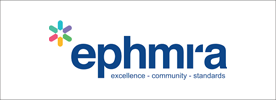The M3 Panel: Patients
Case Studies
Top 10 Conditions
by Panel Count
- 1. Anxiety and Depression
- 2. Psoriasis
- 3. Arthritis
- 4. Sleep Disorders
- 5. Diabetes
- 6. Eczema
- 7. Insomnia
- 8. Cancer
- 9. Asthma
- 10. Acne
Top 5 Conditions
by Project
- 1. General Health
- 2. Psoriasis
- 3. Diabetes
- 4. Neurological
- 5. Breast Cancer
A Powerful Patient Centric Panel Built Specifically for Healthcare Research
As the patient voice has been amplified, our panel has grown exponentially, leveraging relationships with our world class panel of healthcare professionals, and patient advocacy communities to ensure we are front of mind for patient access.
Our powerful patient centric panel, with exceptional coverage of key conditions, is exactly what you would expect from the market leader in healthcare fieldwork. In contrast to other providers’ repurposed consumer panels, the M3 Global Research panel was built specifically for healthcare research.
The M3 Difference
Leveraging the power of the patient panel, we specialise in the build of custom dedicated communities for copy testing, and longitudinal attitude and experience tracking for both quantitative and qualitative approaches.
Our expert team of industry specialists keep your studies on track, on time, and to budget, leveraging their extensive market knowledge to drive the results you want.
Our own incentive payment platform supports self-serve management and withdrawal, with multiple fast payment options. Incentives can be claimed before studies close, driving high engagement from panellists.
Intelligence-driven personalised study invitations to drive high response rates. We deliver a highly personalised respondent experience, leveraging product and service innovationsto generate robust insights
We actively foster partnerships with patient advocacy communities and support groups, and leverage our world-class panel of HCPs to refer relevant patients.
Did You Know?
M3 completed 700+ projects with a total
of 69,000+ patient completes.
700
Projects
69,000
Patient
Completes
153
Unique
Conditions
Seasonal Affective Disorder
M3 recently conducted a study for our client, a management consulting firm targeting patients in the United States who had received a formal diagnosis of seasonal affective disorder (SAD). To fulfil this request, we integrated quantitative assessments with qualitative pre-tests to fully understand patients’ perspectives.
M3 recruited 100 patients with SAD to assess metrics evaluating the appeal and applicability of treatments for their condition. These participants took part in a series of Max Diff exercises, providing a structured approach to gauge and discern their preferences and opinions.
It was anticipated that an external partner would be required due to constraints in our internal targeting tool which lacked specific targeting parameters for SAD. We launched to our panel first and as expected, the incidence rate came in at 27% instead of the estimated 40%.
In addition, there was a hard sub-quota for patients prescribed a specific medication, which required additional sample.
Our solution successfully addressed the project’s challenges, ensuring a timely and budget-friendly delivery.
Through responsive project management, we employed creative targeting strategies, leveraging co-morbid conditions to reach a broad spectrum of individuals, despite the absence of direct targeting for SAD patients.
Remarkably, we met the soft launch quota within a day, allowing us to launch before the weekend. Contrary to the initial estimated timeframe of 10-15 business days, a substantial quota was achieved within just five business days of the complete launch. The efficiency extended throughout the fieldwork stage, exceeding estimates and resulting in a lower number of quality removals than anticipated.
The client was delighted with the results.
With a commitment to continuous improvement, our next steps involve refining our internal targeting mechanisms for future studies, particularly those focused on SAD, to enhance precision and efficacy in reaching the target audience directly.
Details
- Therapeutic Area: Psychiatry
- Respondents Recruited: Patients diagnosed with seasonal affective disorder (SAD)
- Methodology: Quant, with some qual pre-tests
- Countries: United States
Custom Patient Panel Build
Working with a global pharmaceutical company, M3 Global Research were asked to build a custom pre-recruited specialty community which would then be available to address consumer market research needs in the US. The client was planning the launch of a new therapeutic treatment, and the goal of the project was to be able to have a prequalified, dedicated panel who would be available for research as needed, including copy testing, longitudinal attitude and experience tracking, campaign iterations, and general consumer learnings, using both quantitative and qualitative approaches. The target patient ‘persona’ was defined in part by emotional and attitudinal constructs, which informed patient segmentation via an algorithm leveraging relevant attributes.
Given the client’s attitudinal segmentation there was a low incidence rate among the psoriasis population (8%) but the quota for the community was relatively high, making it a very challenging recruit. Another consideration was the challenge of keeping the panel engaged and responsive. This was less of a concern during the initial 14-month ‘build and grow’ period, but over the three-year lifecycle of the panel, responsiveness was negatively correlated with lack of client engagement, resulting in panel attrition.
After completing the client’s dedicated adverse event reporting training, M3’s expert patient team led a detailed client kick-off call to discuss the panel objectives, and agree timelines, as well as offering advice on the build, and discussing the sampling plan within the context of the target patient persona. The project team also proactively identified potential challenges with patient recruitment based on previous experiences and discussed opportunities to target based on community profiling information and interaction with previous projects. The M3 engineers developed a community dashboard which allowed the client to track recruitment progress in real time, giving them full transparency of the panel build. The panel includes 3,805 active respondents.
With the panel in place, the research gains were immediately apparent. The sampling team were able to target specific segments of the patient community based on profiling information (e.g. age, gender, medications, co-morbidities, sub-segments etc). An additional ongoing benefit was the speed of recruit compared to traditional fieldwork as the patient community is pre-qualified. This then means that fieldwork is completed much quicker, so the client gets timely insights.
During the second phase of the panel, starting in Q3 2019, we proactively took steps to keep the panel engaged away from formal client studies, ensuring that they remained highly responsive contributors.
The client has identified a huge value in having a specialty community they can engage with monthly, in addition to the longitudinal trackers that they run. The agile nature of the panel means that any ‘in the moment questions’ they have can be included in their monthly engagement to get a quick pulse / reaction from the community. Engagement remains high, with average monthly engagement at n=540, exceeding the n=500 quotas for the monthly studies. The client, and their market research agencies have also been delighted with the speed of turnaround of research given the pre-qualification of panelists.
The community has now been in operation since 2016, exceeding the client’s expectations in terms of the longevity of the initiative. They did not expect to keep the panel active for so long, but the value they have continued to derive from it has been a massive factor in the duration. The panel has natural attrition, which M3 has continually ‘topped up’ and the client continuously reviews the segmentation, considering whether they want to continue focusing on this patient persona given the level of investment, or to consider building a second complementary panel focusing on a different target.
Details
- Therapeutic Area: Dermatology
- Respondents Recruited: Patients with Plaque Psoriasis
- Methodology: Bespoke Community Build
- Country: United States
- Custom Panel Engagment:
| Quarter / Year | # of Projects | # of Completes |
|---|---|---|
| Q1 2020 | 4 | 1,801 |
| Q2 2020 | 6 | 1,259 |
| Q3 2020 | 4 | 1,116 |
| Q4 2020 | 5 | 1,018 |
| Q1 2021 | 6 | 2,212 |
Patient Engagement
The client, a public sector healthcare provider, approached M3 Global Research to support, and professionalise, a programme of research to inform a project co-designing cardiovascular disease treatment pathways inside their geographical footprint. The initiative was designed to bring together the needs of ‘citizens’, clinicians and stakeholders at all levels, with their definition of ‘citizens’ to include patients, residents, carers and service users, as well as engaged stakeholder groups. The primary objectives of the research were to communicate and discuss the population needs, share in good practice, and agree priority areas of work. The workshop format also facilitated an interface between HCPs and patients, helping to amplify the patient voice and improve understanding of living with cardiovascular disease.
Before partnering with M3, the client had recruited participants for research via patient advocacy groups; an approach that had been criticised for being too narrow in terms of the target group, and not a representative cross-section of service users. Their goal was to use evidence from their engagement to make measurable changes, but to also feel confident that they were making decisions on sound evidence gathered from groups that were representative of the wider population.
During the first session it became clear that due to the divergent nature of the attendees, the conversations needed to be held using non-technical language. The facilitator was immediately able to address this, ensuring full engagement across the sample.
The research was designed to ensure that decisions relating to service change / transformation taken by the client’s cardiovascular workstream were informed by ‘educated’ general public opinion. The intention was that this data would bring about measurable impact through immediate changes to care pathways, and identify scope for process improvement earlier in the patient journey, e.g. at the point of referral.
Patient recruitment was particularly crucial given the importance placed on the need for a representative sample. Physician members of M3’s proprietary panel were asked to refer patients as well as those that could be defined as ‘at risk’, across the four disease areas. Recruiters also used targeted social media campaigns to recruit additional attendees. One significant diversification from previous attempts at engaging ‘citizens’ was to remunerate the patients at all stages of engagement. This enabled the NHS to access a broader, fully representative sample of patients that fully met the objectives of the research.
Given the communication challenges in the first session, M3 recommended the development of a patient briefing pack which explained the process and gave attendees all the relevant information they needed. Following the first session the new approach ensured that all information presented was more accessible (and interesting!), regardless of the level of knowledge of the attendees.
For the first time, a representative group of citizens have been at the centre of service development and decisions around which priorities the NHS should be measuring. Working with us enabled the client to achieve one of their primary objectives; that of engaging with a representative group of ‘citizens’, including hard to reach groups, such as an Alzheimer patient, and their carer, and a mother of a 6-month-old child.
Working together, the client and M3 Global Research have started what could truly be considered transformational in terms of culture change within the NHS. For the first time, their formal approach to patient engagement and patient / stakeholder co-design for the cardiovascular disease workstream has resulted in patient-led priorities and improvements.
Now being advocated as best practice for ongoing work across the NHS in collaboration with The King’s Fund and NHSE (NHS England) the project has demonstrated the benefits of a patient centric approach and illustrates why (and how) the NHS needs to change its approach to engagement.
Details
- Therapeutic Area: Cardiovascular Disease
- Respondents Recruited: 50
- Methodology: In-depth interviews and co-design workshop
- Country: United Kingdom
ATTR-CM Custom Patient Panel
On behalf of a prominent pharmaceutical manufacturer, M3 Global Research was asked to build a custom, pre-recruited panel in the US for patients living with transthyretin amyloid cardiomyopathy (ATTR-CM). This rare and underdiagnosed condition affects the heart’s ability to properly pump blood to the body. The goal of this project was to establish a prequalified and verified panel, tailored to meet the client’s specific requirements, which would then be utilised for the next year. This panel was designed to enable and facilitate qualitative research initiatives to support the advancement and expansion of the spectrum of therapeutic options available for ATTR-CM patients.
The low prevalence of ATTR-CM as a condition presented a significant challenge by limiting the total universe size of potential participants in the US compared to other types of heart disease. Previous attempts by various vendors to obtain a qualified sample for validating research findings had proven unsuccessful due to the rarity of the disease, delaying the research process, and hindering the ability to draw accurate conclusions. Meeting the client's specific requirements and quotas for the panel further added to the complexity, given the scarcity of eligible participants. Additionally, gaining access to support groups and advocacy organisations supporting ATTR-CM patients has been another hurdle in effectively connecting with individuals and caregivers who possess relevant experiences.
We extended the initial panel-building phase, in order to achieve the required sample size, respondent qualifications, and diagnosis or medication verification to eliminate the fielding challenges that had previously plagued earlier attempts. Through our internal custom recruitment efforts and relationships with support and advocacy groups, we were able to attain the required number of pre-qualified and verified ATTR-CM patients for this custom panel to fulfil forthcoming qualitative projects.
By streamlining the recruitment of qualified and verified samples, the fielding timeline was significantly reduced from weeks or months to a matter of days. This expedited the research process and elevated the quality of respondents. The project prompted slight adjustments, allowing caregivers to join the panel alongside patients, thereby incorporating an alternative viewpoint in research responses. This outcome has established a solid foundation for ongoing collaboration and the potential for further expansion and advancement.
Details
- Therapeutic Area: ATTR-CM patients and caregivers
- Respondents Recruited: 35 patients, 5 caregivers (ongoing recruit)
- Methodology: Custom patient panel build for pharma sponsor that will serve panel for the next 12+ months of research
- Country: United States
What Our Patient Panelists Say
Susan believes the studies she has participated in for M3 Global Research are important because participating gives the patients a voice. She says, “It helps whoever is behind the study—whether it’s a pharmaceutical company or an agency behind the survey—get the right information from the patients, which is who they’re trying to help.”
Susan, Breast Cancer Survivor
"It’s important to participate in market research studies like those M3 Global Research conducts...they can help patients access more quality information."
Stephanie, Cervical Cancer Survivor
"I participate in healthcare market research studies because it is important to tap into the experiences of patients to bring awareness to their journey living with an illness...gathering the patient perspective is especially important for a disease like MS that is so variable and unpredictable."





